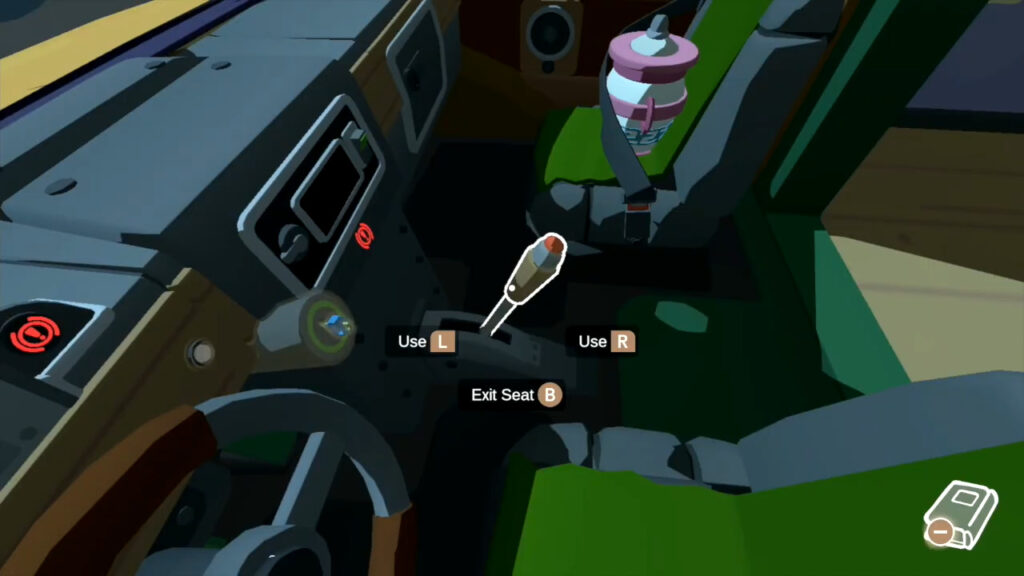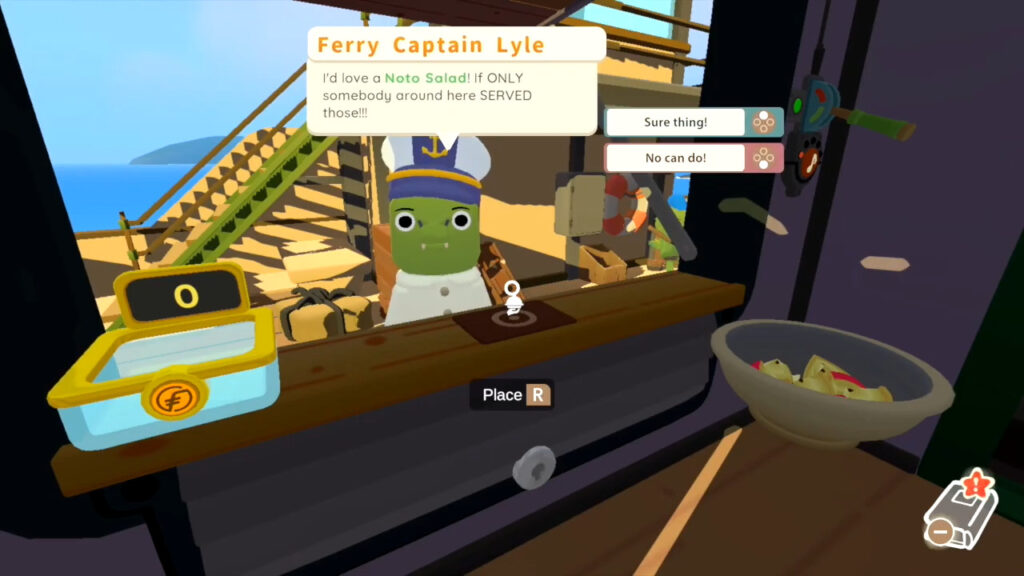
Developer: Krillbite Studio
Publisher: Krillbite Studio, The Iterative Collective
Platform: PC, Switch, Xbox One, Xbox Series X|S, PS4, PS5
Tested on: Switch
Fruitbus – Review
If you’re a regular visitor of this website, then you’ll undoubtedly have noticed that we’ve been playing quite a few cozy games lately, ranging from Wyrmhall to Artis Impact. Cozy games are a relatively new genre, but over the last few years, there has been an increasing number of titles that opt for offering a relaxing atmosphere, cute visuals, and just a way to unwind after a stressful day. We’re all for that approach, and the subject of today’s review, Fruitbus, definitely fits the definition. The game made its debut on most platforms in October last year, but we’re taking a look at the more recent Switch port. Is this a bus you should get on?
Story
Despite Fruitbus’ cozy exterior and cutesy atmosphere, the story the game presents deals with surprisingly heavy themes like legacy and grief. It also carries positive messages, however, focusing on community and how food can bring people together. The titular Fruitbus is a food truck that once belonged to the grandmother of the game’s protagonist (that’s you). After your grandmother passes away, you inherit the Fruitbus. To honor her memory, you set out and travel to three nearby islands and convince the quirky locals to attend a farewell feast for her. Despite grandma being dead, she’s very much present throughout, however, both in flashback cutscenes and literally, as you carry her ashes in an urn on the passenger seat. The narrative is surprisingly touching and poignant, but there is also plenty of room for quirky humour as well.
Graphics
In terms of visuals, Fruitbus is a mixed bag, at least on the Switch. The game absolutely nails the cozy atmosphere it goes for with its charming, low-poly art style, which resembles stop motion animation. The exaggerated character traits add personality to the different characters you encounter. The game is seen through the protagonist’s eyes, so we never see what they look like, however. The three islands that Fruitbus is set across offer distinct biomes, from the jungles and volcanoes of the Banamas to the snowy landscapes of Frosty Pines. Of course, food looks fantastic as well, with ingredients changing color as you prepare them, and dishes looking outright delicious. That said, the game’s visual performance does not match its appearance. Despite the simplified visuals, there is noticeable slowdown on the Switch, with stuttering and frame drops being very common. Rough edges like this are prominent enough to detract from the game’s overall art direction and visual appeal.
Sound
Nina Nikolic brings a ton of personality to the table when it comes to voicing Grandma, but apart from her work, voice acting is notably absent. The game instead relies on a whimsical soundtrack to tie everything together, and to its credit, it succeeds in doing so. Sound effects are surprisingly effective as well, with the sounds of using cookware in particular adding to the game’s overall feeling of immersion. The resulting soundscape is as realistic as it is gentle and relaxing, further shaping Fruitbus’ overall feeling of cosiness.
Gameplay
At its core, Fruitbus is a food truck simulator game, but the way it presents itself is completely different from, well, Food Truck Simulator. The core loop is as straightforward as it gets: from behind the wheel of the bus, you drive around the different islands. You forage ingredients from the different biomes and use them to prepare all sorts of dishes, ranging from salads and smoothies to soups and bread. Early on, you are limited when it comes to which kitchen tools you have at your disposal, and even your storage space is limited, but as you service customers, the profits you turn can then be invested in bus upgrades. Along the way, you’ll build relationships with your customers, winning their trust and eventually even convincing them to come to Grandma’s farewell feast.
The meal preparation mechanics are very tactile and similar to those of Overcooked!, with multiple steps needed to prepare ingredients. Things start out simple enough with salads and sandwiches, but as you progress, you can move on to more complex dishes. New recipes are unlocked gradually too, but you don’t have to stick to them. Experimentation is encouraged, and discovering new combos that customers like is very satisfying. Being a cozy game, Fruitbus is a fairly stress-free experience, and you can take your time in the kitchen as you try out new things. That said, making money remains an important mechanic in order to progress, as this remains your main method of unlocking new stuff for the truck, not just cookware but cosmetics as well. While you’ll spend most of your time cooking, Fruitbus does put some importance on exploring your surroundings as well, mostly to gather fresh ingredients, but also to help out NPCs with simple requests. These involve things like finding lost items or painting statues. In order to get customers to attend the feast, which is your overarching goal, you’ll typically need to feed them their favourite dish as well as complete their request.
With three islands, jam-packed with NPCs to talk to and recipes to discover, Fruitbus offers a fairly sizable experience. The downside is that the core loop itself doesn’t evolve or become more complicated as you play through the game. While we did absolutely enjoy the cozy atmosphere and stress-free gameplay, over time, things did start to feel repetitive and grindy. Perhaps this is the kind of game that is best played in short bursts rather than over long sessions. At around 13 hours to complete, Fruitbus isn’t the longest game in the first place, although it does have a fair bit of replayability, simply because quests and exploration can be approached in different ways. The RRP of €19.99 for the Switch version seems right on the nose, although the €24.50 for the Steam version is a bit more difficult to justify.
Conclusion
Although Fruitbus doesn’t bring anything new or revolutionary to the table, the game still excels at what it sets out to do. Despite the more difficult themes, the story was heartwarming and even managed to put a smile on our faces. The gameplay is surprisingly tactile while also keeping things stress-free. The Switch version’s visual performance may not be entirely up to snuff, and the game isn’t too suited for lengthy play sessions, but if you can savour Fruitbus and play it in short bursts over time, we have no doubt that you’ll end up loving it.









No Comments